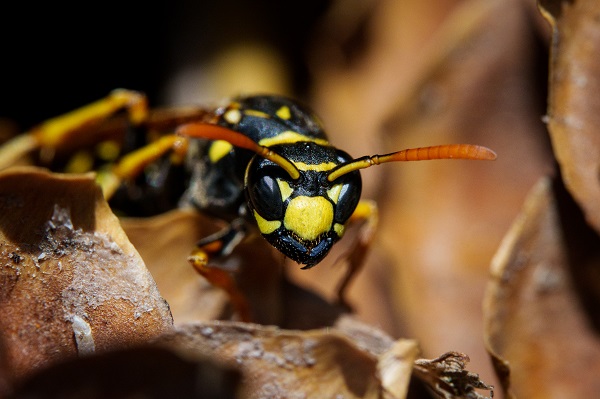 Credit: © Sören Salvatore
Credit: © Sören Salvatore
In the third in a series of articles about current conservation issues, experts at natur&ëmwelt, a leading nature conservation NGO in Luxembourg, spoke to Chronicle.lu about the relationship between wasps and humans.
Natur&ëmwelt volunteer David Crowther helped compile the relevant information from the NGO for this article.
Whilst some may think April is a bit early to talk about wasps, now is the time to set up a network for helping people to deal with their largely unwelcome sharers of the summer warmth. Over recent years, fire brigades have withdrawn from the firing line of handling householders’ pleas for help. This has left organisations like natur&ëmwelt to fill the breach. Last year, a huge proportion of phone calls to natur&ëmwelt’s conservation advice hotline were about wasps.
Chronicle.lu: So, wasps are the hot topic on the hotline?
Natur&ëmwelt: By a country mile. In response, natur&ëmwelt has set up a national network of correspondents who are trained and willing to provide advice on this thorny issue. On Thursday 27 April, there’s an open discussion session for anyone who’d like to learn more about the subject.
Chronicle.lu: Dealing with wasps is a complicated business then?
Natur&ëmwelt: There’s plenty of diversity among wasps. We have more than 300 wasp species in Luxembourg, but only fifteen of these are social (as opposed to solitary) and only two of those can really be counted as “annoying”. Unfortunately, a lot of the nests that are destroyed actually belong to the “nice wasps”, because they nest in exposed places where people can see them.
Chronicle.lu: And what is the point in wasps? What ecological niche do they occupy?
Natur&ëmwelt: We don’t think about nature like that anymore, in terms of useful/pointless. Wasps are pest controllers, pollinators and processors of fallen fruit. As such, they provide important “ecosystems services”.
Chronicle.lu: But they can be quite a nuisance, especially when people are eating outdoors...
Natur&ëmwelt: True, wasps and people tend not to get on very well. But the natur&ëmwelt view is that this is no reason to go around swatting the creatures, drowning them in sticky drinks and destroying their wonderfully intricate paper nests.
Chronicle.lu: Their nests are made of paper?
Natur&ëmwelt: The nest-building wasps strip slivers of wood from, say, garden furniture and chew it up into paper pulp. It took humans much longer to work out how to make paper…
Chronicle.lu: But people do not particularly like having wasps’ nests being built in or around where they live…
Natur&ëmwelt: That’s understandable, though wasps are really only getting on with their lives and have no wish to tangle with people. People dislike wasps much more than wasps dislike people. They love our food, for instance… They only start bugging us towards the end of the season when food sources in nature become scarce (when they have already pollinated millions of flowers and consumed lots of other bugs like oak processionary caterpillars). Having said that, there are various ways of dissuading wasps from nesting in places where their presence is awkward or downright unwanted. There are lots of useful tips in the natur&ëmwelt leaflet, which is available in English too.
Chronicle.lu: What is the basic advice then on dealing with wasps?
Natur&ëmwelt: Don’t panic, don’t flap or thrash around. Stay calm, don’t antagonise the wasp. Don’t blow at them, that really gets them mad. If you know where the nest is, don’t block their access to it. Wasps sting in defence; they don’t attack until they too are attacked. And if it helps: only female wasps are equipped with stingers.









